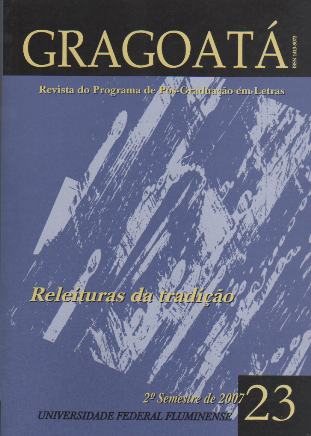Taking off the veils, watching the other: Bakhtin and contemporary multicultural dialogues
Keywords:
Film language. Multiculturalism. Polyphony. Mikhail Bakhtin. A MaçãAbstract
This paper articulates classical considerations by Mikhail Bakhtin on the concept of polyphony, formulated in the first half of the twentieth century, to contemporary cultural criticism. Revisiting the critical tradition set forth by the Russian theoretician and dear to scholars from Literary Theory, Sociolinguistics, and Cultural History, among others, proves to be extremely fertile today. Complex symbolic exchanges mix up enunciation places in conflicts or identity negotiations at local or global levels. If, on the one hand, an increasing number of film co-productions pay thematic and economic testimony to the intensification of multicultural traffic and partnerships, expressed in the emergence of ‘inside voices’ and/ or self-representations, on the other hand, they reveal some difficulty in formulating productive questions on concrete dialogic possibilities on an inter/multicultural basis. Simplistic and longlived dichotomies between the new and the old or more perverse correspondences between the good and the evil contribute a lot more to univocity than to the polyphonic tension, as conceptualized by Bakhtin. Our specific aim is to exam the film language in A Maçã by Samira Makhmalbaf, 1998. We have attempted to construct our object on a descriptive basis located between the iconographic and the verbal to prompt a broader ideological view, underlying to this French-Iranian ‘cultural good’.
Downloads
Downloads
Published
How to Cite
Issue
Section
License
Authors who publish in Gragoatá agree to the following terms:
The authors retain the rights and give the journal the right to the first publication, simultaneously subject to a Creative Commons license CC-BY-NC 4.0, which allows sharing by third parties with due mention to the author and the first publication by Gragoatá.
Authors may enter into additional and separate contractual arrangements for the non-exclusive distribution of the published version of the work (for example, posting it in an institutional repository or publishing it in a book), with recognition of its initial publication in Gragoatá.

Gragoatá is licensed under a Creative Commons - Attribution-NonCommercial 4.0 International.











